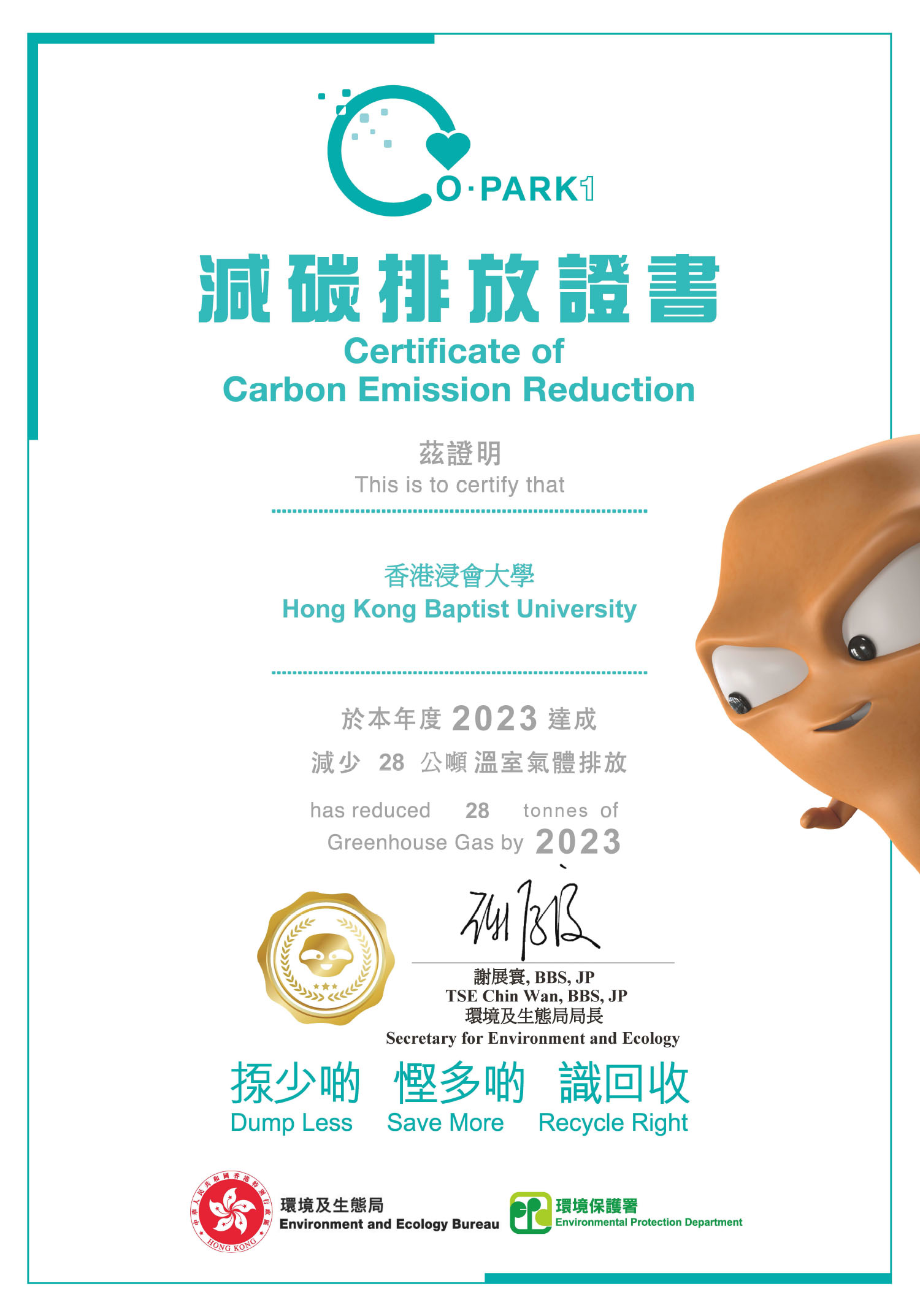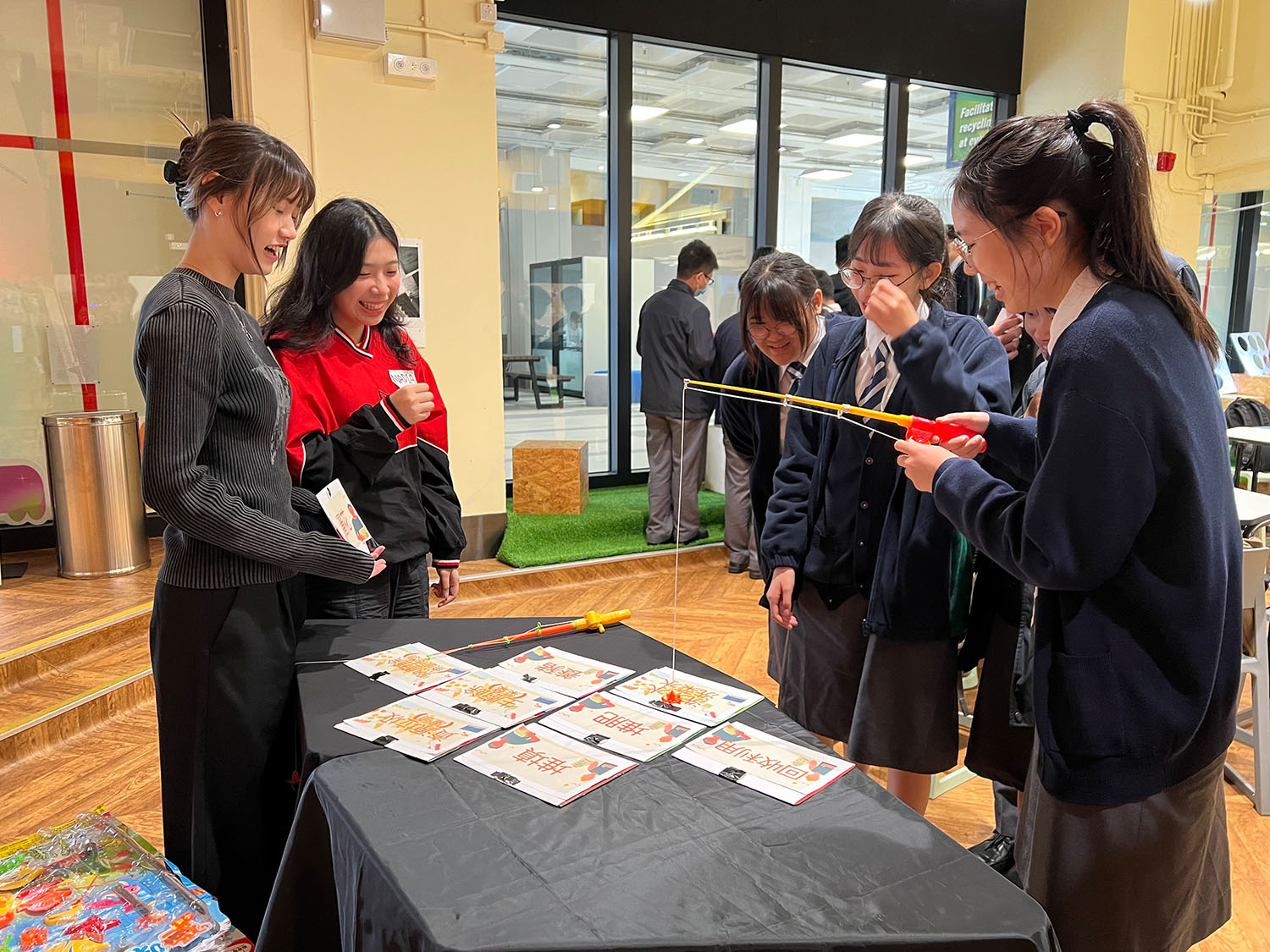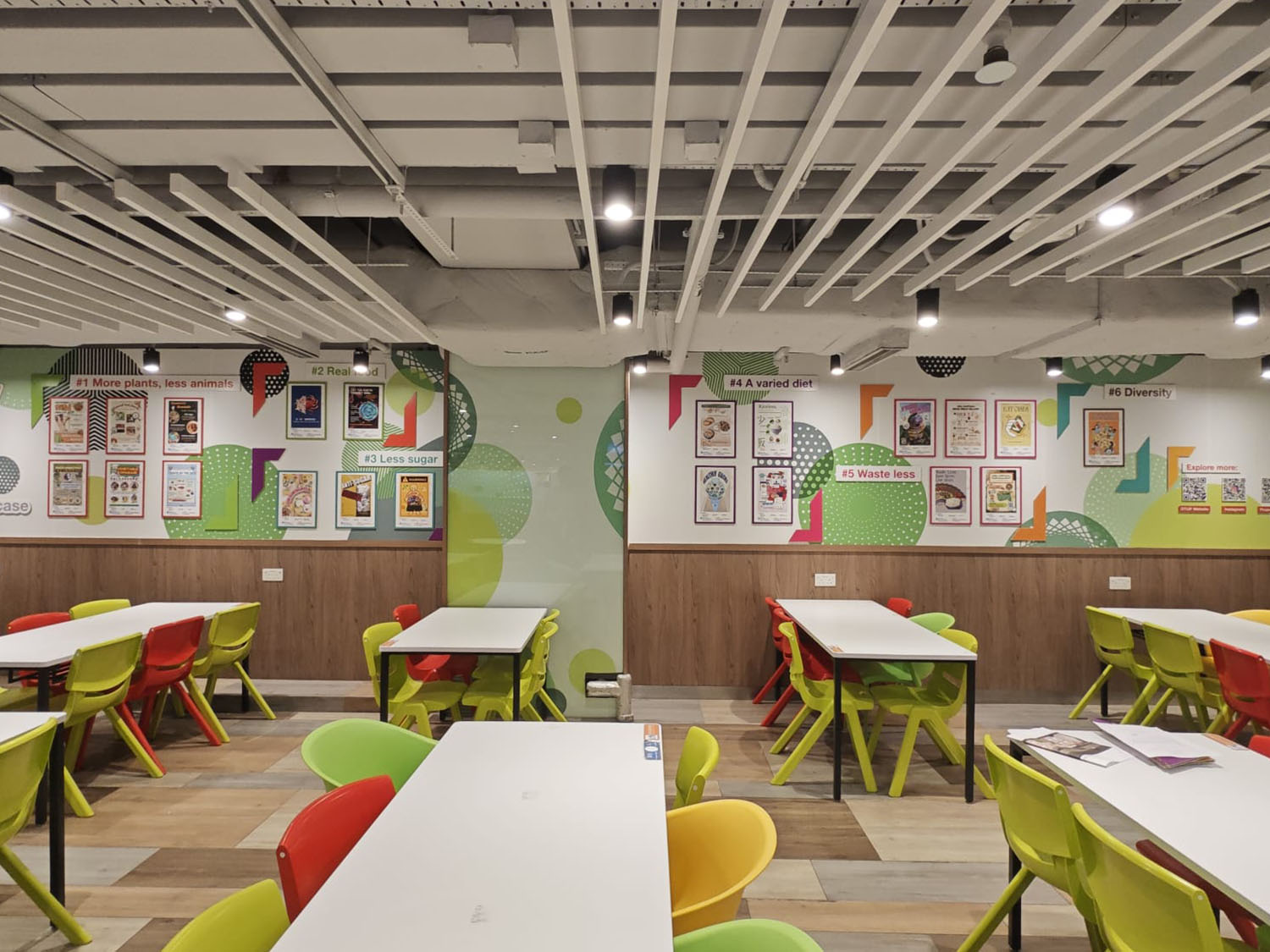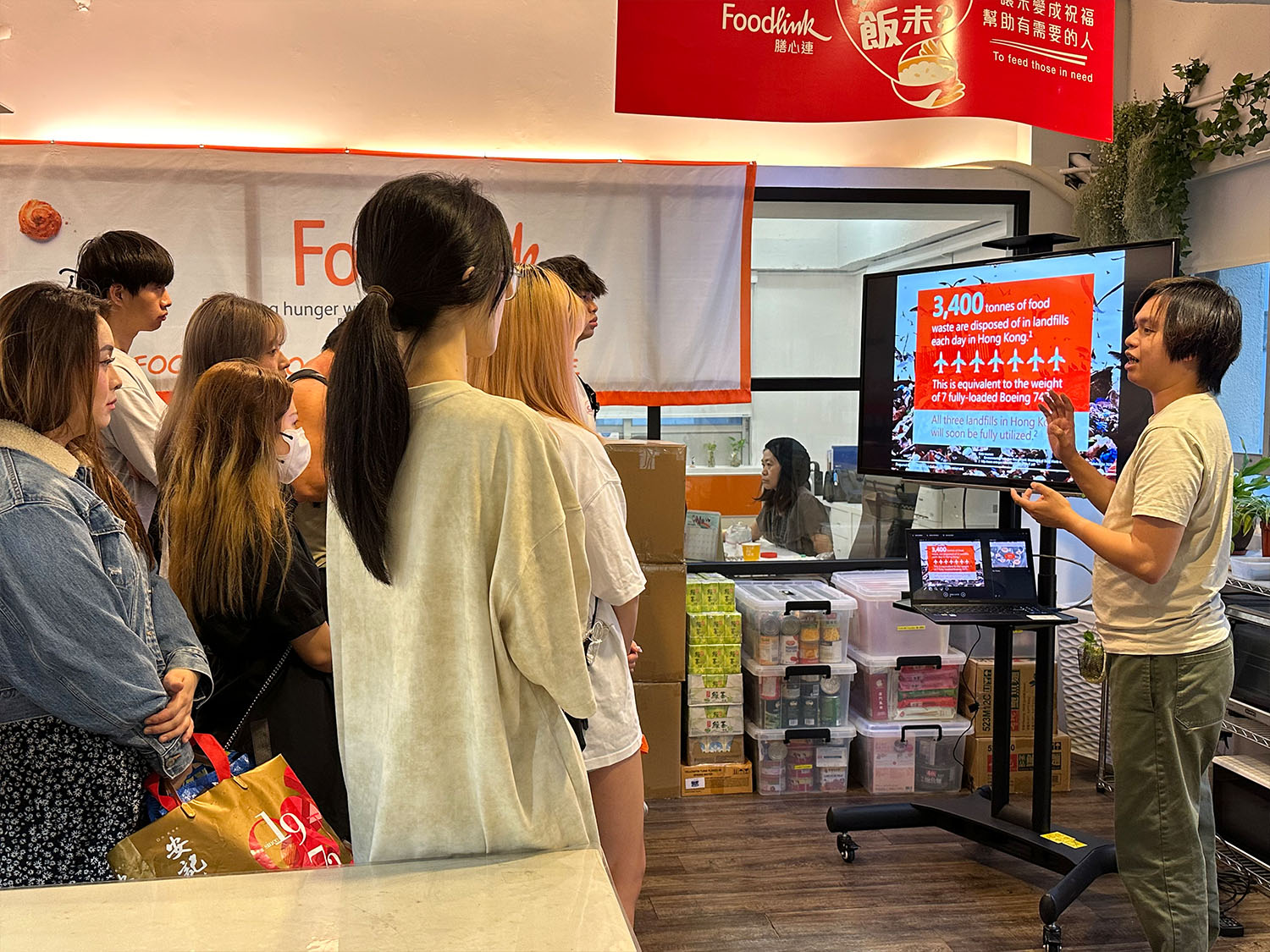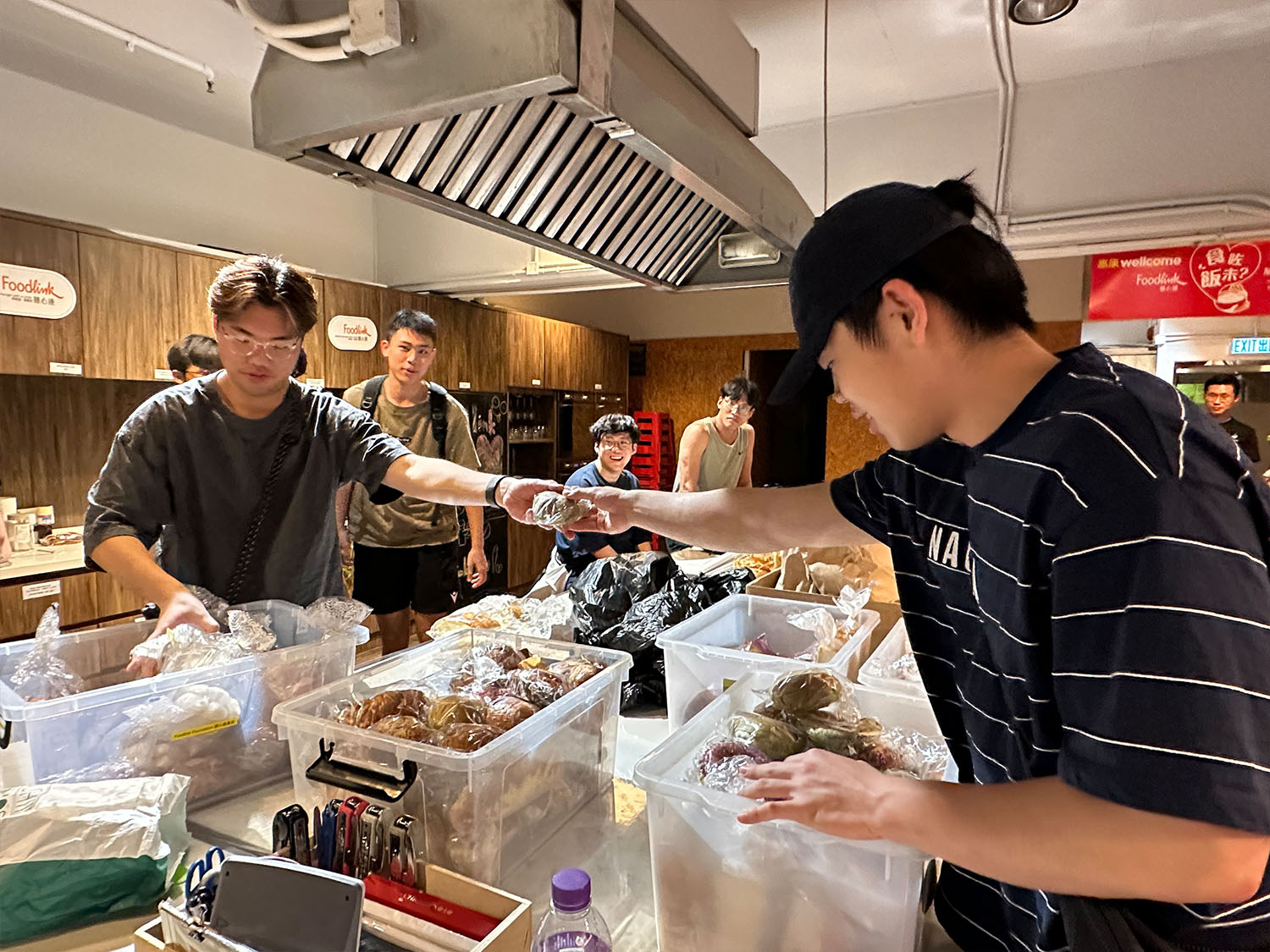SDG 02: Zero Hunger
In the service-learning course "Global Challenges II", Dr Daisy Tam, Associate Professor at the Academy of Language and Culture, challenged the students to explore the complexity of sustainable eating through a transdisciplinary approach. The students delved into the intricate food system, seeking sustainable solutions by engaging in hands-on activities with the local charity, Breadline, which involved collecting surplus bakery items and distributing them to street dwellers. They also had the opportunity to exchange canteen practices with international universities and shared their insights with local secondary school students. Reflecting on their experiences, the students created posters that depicted their vision for the future of canteens, aiming to promote the message of zero hunger.
Connecting communities: Redistributing bread to the needy
The "Replacing Hunger with a Smile" Bread Redistributing Service Programme, in collaboration with the non-profit organisation Foodlink, involved collecting safe-to-eat surplus food and delivering it to those in need. Dr Gray Ho, the Resident Master of C. L. Soong Hall in the Undergraduate Halls, initiated this meaningful activity. A group of 18 participants collected unsold bread from bakery shops and learned to use food waste processors and garbage disposal systems. The collected bread was then redistributed to the hungry and needy. Students enjoyed the overall voluntary experience and felt contented with serving the community. This activity allowed students to understand the problem of food waste and the challenges faced by low-income households, the homeless, and others in need, while also helping to reduce hunger in Hong Kong.
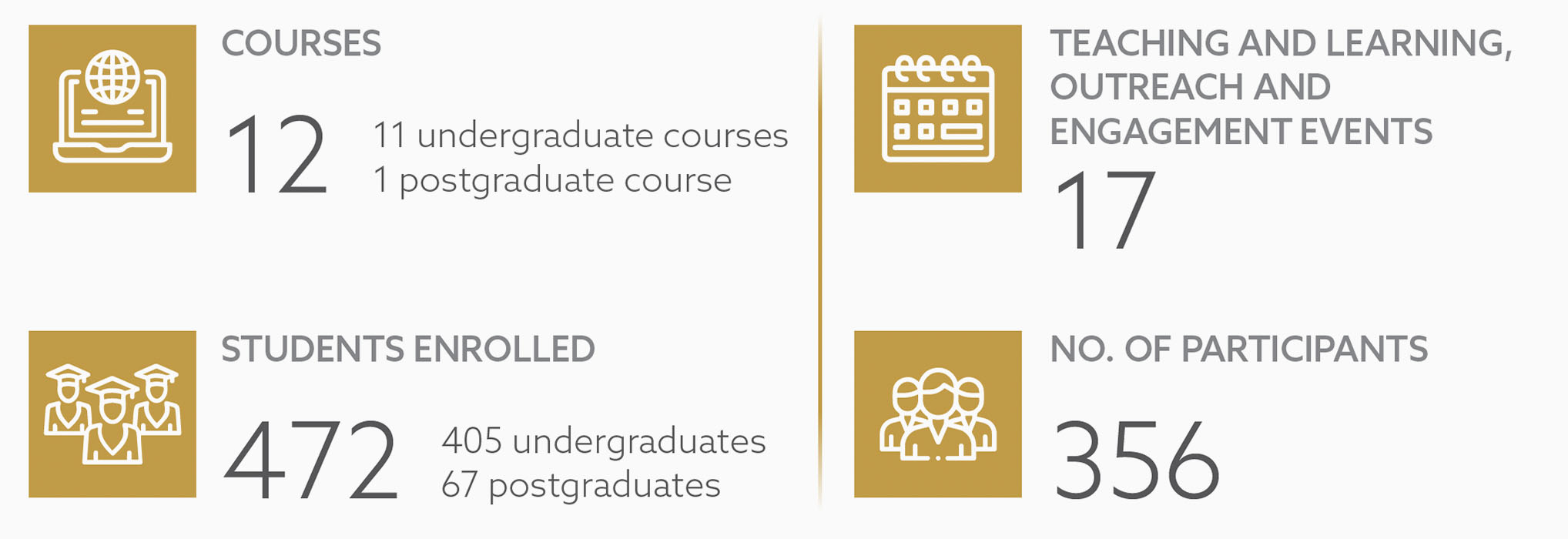

Department of Biology
Authors: Chris KC WONG, Hong Kong Biodiversity Genomics Consortium*
*Corresponding author
The jelly-like mushroom tastes delicious and helps clean forests and preserve food. This study focuses on this particular edible jelly fungus Dacryopinax spathularia, which can be found in warm places all over the world. As it feeds on dead wood, it breaks it down and returns nutrients to the environment, making it an essential part of the forest ecosystem. As well as being used in food production, this fungus is a natural preservative. There was no complete genetic blueprint for this particular jelly fungus available. Intrigued by this fungus, the consortium has now sequenced its genome. This information will enable the community to comprehend how the fungus functions, its evolutionary process, and its production of natural preservatives.
This new knowledge is crucial for food sustainability. Understanding how the fungus produces its natural preservatives may enable researchers to develop new, eco-friendly methods for preserving food and decreasing waste. This could lead to increased food availability for all while minimising environmental impact. Therefore, this small mushroom could be the key to a more sustainable food future, inspiring everyone to work towards a better world.
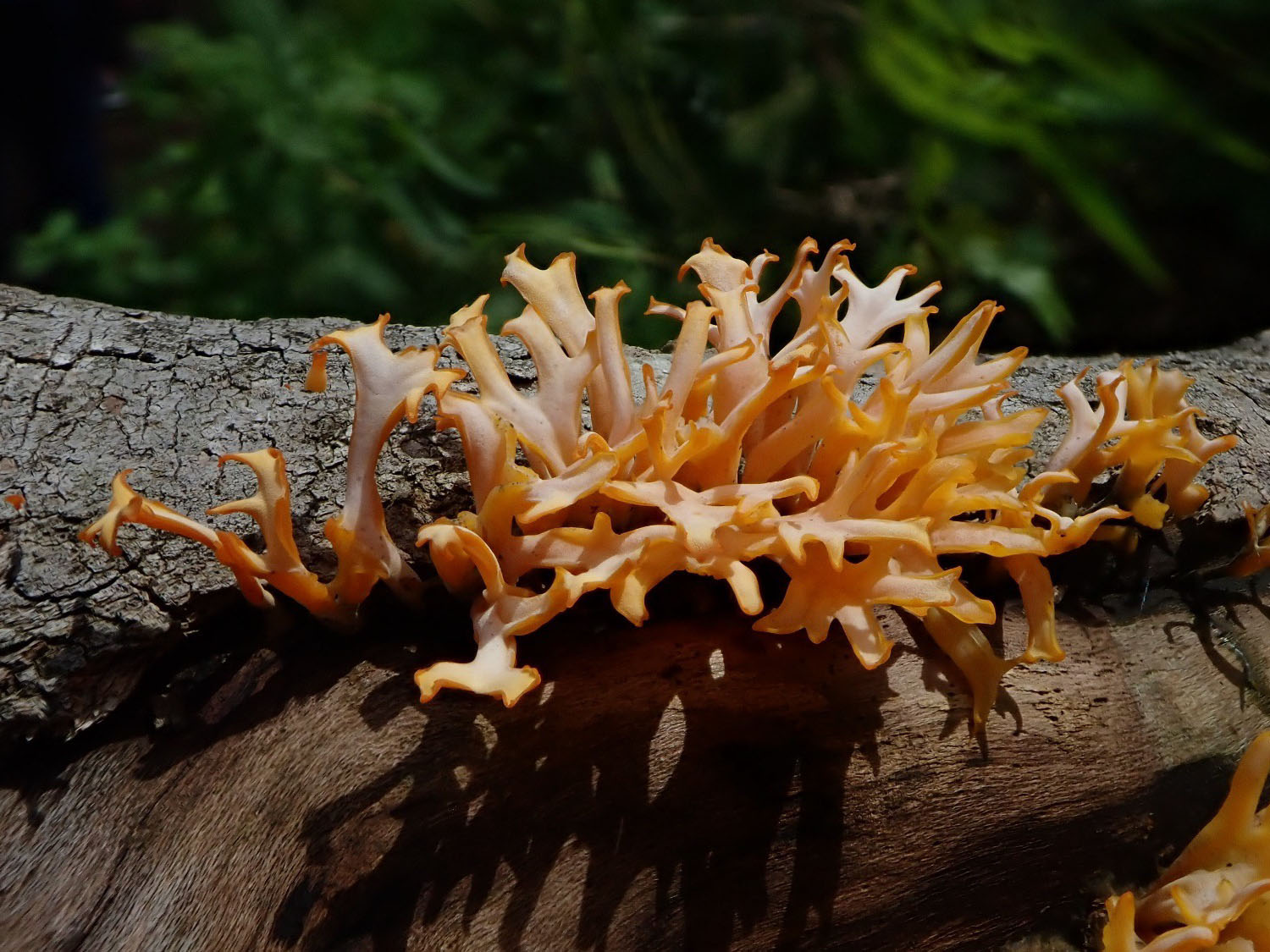

Alternate wetting and drying irrigation enhances grain filling of inferior spikelets for different rice cultivars
Department of Biology
Corresponding authors: ZHANG Jianhua, ZHANG Hao, YANG Jianchang
The long-standing collaboration in rice production research has yielded valuable insights. Previous studies demonstrated significant enhancements in rice yield and water use efficiency through the adoption of an alternate wetting/drying (AWD) irrigation scheme, leading to notable impacts in rice production. Building on this foundation, our latest research reveals that integrating nitrogen use efficiency with AWD practices can further enhance rice cultivation methods. This novel approach holds practical significance for rice production.
In the recent study on nitrogen use efficiency under AWD water management, the team explored the interplay between irrigation strategies and nitrogen application rates on grain yield, nitrogen use efficiency (NUE), and water use efficiency (WUE) in rice. Conducted over two years with varying irrigation regimes and nitrogen application rates, the results highlighted the superior performance of the moderate nitrogen (MN) rate under the alternate wetting and moderate drying (AWMD) regime, showcasing increased grain yield, NUE, and WUE attributed to improved physiological processes in roots and shoots. This research underscores the potential synergistic benefits of combining AWMD with optimal nitrogen levels for enhancing rice production sustainability.
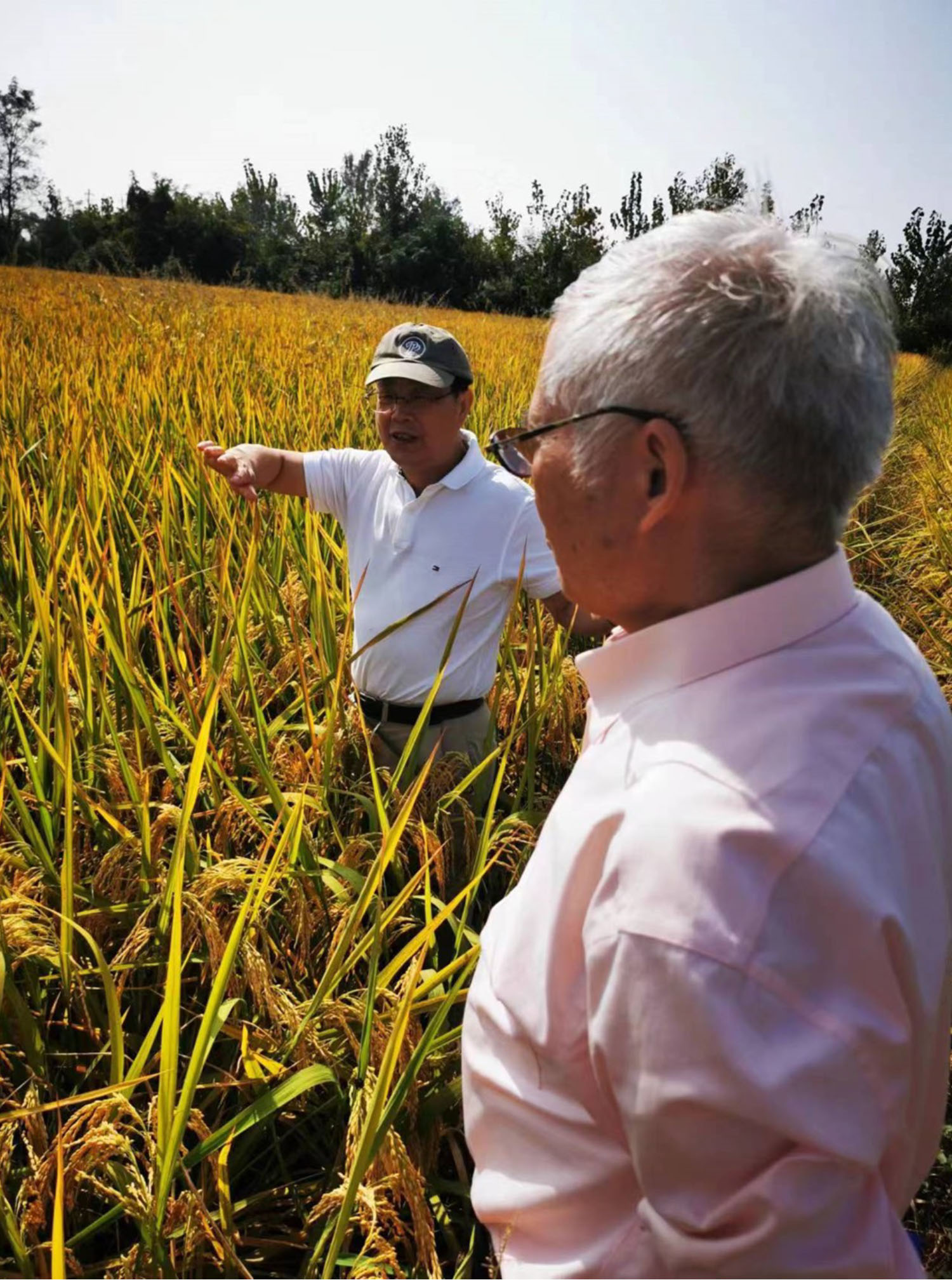

HKBU has implemented a Sustainable Procurement Policy to minimise the environmental impact of its purchases across the product lifecycle — from raw materials to final disposal. Complementing this policy, the Sustainable Food Policy prohibits the procurement and consumption of certain unsustainable food items, such as those with conservation concerns or high environmental impact, in the University's catering services and dining outlets. This promotes the responsible sourcing of food products and ensures the campus community has access to a diverse range of safe, nutritious, and eco-friendly dining options, setting a positive example and contributing to a more sustainable, food-secure future.
Affordable dining options
A number of catering outlets offering food at affordable prices or discounts are available on campus for students and staff, with a wide range of healthy dining options, spanning Chinese and Western dishes, quick bites, vegetarian options, and Halal-certified food provided to the HKBU community.
Office Pantries for Staff
The University maintains office pantries across campus, providing staff with a designated space to take breaks and enjoy complimentary snacks and beverages. These pantries foster a relaxing atmosphere that encourages peer interaction and recharging. Additionally, staff can visit the diverse range of catering outlets on campus for their dining needs.
Staff activities on food waste upcycling
In alignment with the University's sustainability and zero hunger initiatives, the Human Resources Office has organised staff activities focused on upcycling food waste. During these hands-on workshops, participants learned about food waste challenges in the local community and transformed food waste into practical items such as jewellery and plant pots. The most recent session, held on 26 July 2024, was well-attended by staff keen to take part in this educational and creative endeavour.
Campus food waste tracking
The University has taken a proactive approach to addressing food waste through its participation in the Pilot Scheme on Food Waste Collection Services organised by the Environmental Protection Department. Between July 2023 and June 2024, a total of around 54,000kg of food waste generated within the University campus was collected through this initiative. The collected food waste is then transported to O · PARK1, a resource recovery centre in Hong Kong, where advanced anaerobic digestion technology is employed to convert the food waste into biogas for electricity generation, with the residues utilised as compost.
Furthermore, the University has introduced food waste collection bins at the pantry in selected offices since May 2024, as a pilot initiative to enhance food waste recycling among staff. The effectiveness of this programme will be regularly assessed, with plans to progressively expand the service to additional offices where deemed suitable, encouraging broader participation in food waste reduction and recycling practices across the University community.
